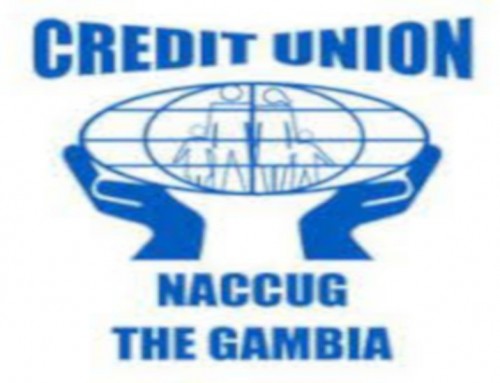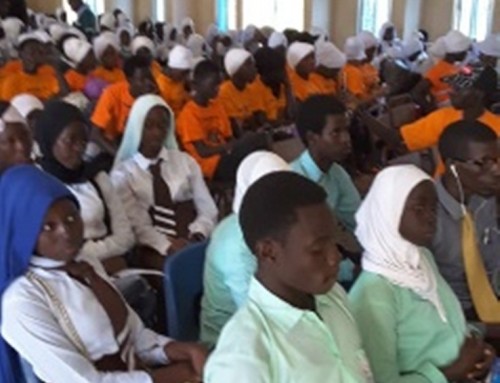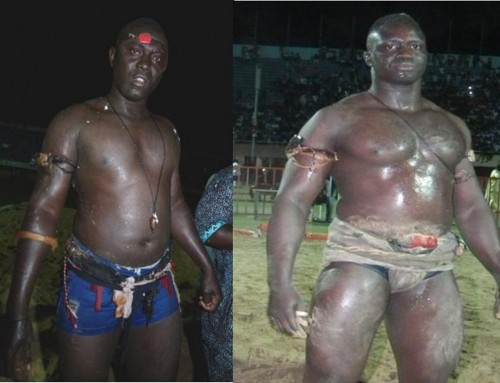
By Bambo Jarsey
Since the establishment of the transitional government headed by President Adama Barrow in January 2017, I have keenly followed the discussion regarding the Memorandum of Understanding (MoU) that brought together seven opposition parties plus an independent presidential aspirant in the form of a coalition to challenge then President Yahya Jammeh at the 2016 elections. The debate has centered on the provisions of paragraph 4 (iii) of the MoU, which governs “the tenure of office and conduct of the Coalition Flagbearer.” Subparagraphs 4(iii) (1) and (5) respectively provide as follows:
“The Flagbearer shall lead a transitional Government for a period of three years”
(5) “not seek for re-election until after the five years after the transition period.”
As President Adama Barrow has now all but made clear his intention to serve a full term of five years, instead of the three years agreed with his Coalition colleagues, this paper seeks to add to the ongoing discourse about the relationship between the Coalition MoU and the 1997 Constitution of The Gambia. In particular, it explores whether the three-year stipulation in the Coalition MoU, violates the Constitution.
At the end, it concludes that the MoU does not violate the letter or spirit of the Constitution as it is a private contract between its signatories. The test of its legality and whether President Barrow is bound by its terms, lies not in its consistency or otherwise with the Constitution, but whether it faithfully and accurately reflects the intentions of the parties whose relationship it is meant to govern.
It is for this reason that in determining whether to quit at the end of three years (2019) or cling on to power for five years (2021) the determining factor for Barrow should not be that the Constitution provides a term of five years for President. After all, he knew fully well that the Constitution provided for a term of five years for president when his party signed the MoU and he agreed to serve as flag bearer under the terms of the MoU. This is about Barrow’s moral character! Does he have the honesty, integrity and courage to uphold his promise and respect the will of the signatories to the Coalition MoU?
In my view, President Barrow’s not-so-secret decision to hang on to power for five years, on the pretext that the Constitution provides a presidential term of five years, is based on convenience, not principle. It demonstrates a lack of good faith, personal conviction and principled leadership on his part. In short, Adama Barrow is a deeply flawed character and the crisis of integrity that emerges from his treatment of the Coalition MoU ought to concern all well-meaning Gambians.
Constitutional violation
or personal integrity?
Paragraph 4 (iii) (1) of the Coalition MoU has no relationship to the Constitution. It is a private agreement between its parties. It operates in the private law sphere to govern the relations, inter se, between the seven political parties and the independent political aspirant who all subscribed to it. While compliance or non-compliance with the MoU has significant implications for our constitutional framework, this does not detract from the essential character of the MoU as a private agreement between its signatories. It is those signatories and them alone, who can seek redress for its violation. Unfortunately, Adama Barrow knows and is taking advantage of the fact that the Constitution provides immunity from civil or criminal proceedings against the president during his term of office and therefore that the other coalition partners cannot sue him in the ordinary courts of law.
Again, in my view, this speaks to the deeply flawed character he is. However, President Barrow should be reminded that there are other avenues for redress which could be utilised to deal with his contemptuous treatment of the terms of the MoU. For example, Section 67 (1) (b) (ii) of the Constitution provides that upon an allegation that the president has conducted himself in a manner which brings or is likely to bring the office of the president into contempt or disrepute, 50% of the members of the National Assembly can give notice to the speaker to request that the chief justice convene a special tribunal to investigate the president’s conduct. Where the tribunal, which is to be headed by a justice of the supreme court, finds that the allegations against the president are substantiated, the National Assembly could, on the affirmative vote of two-thirds of its members, remove the president from office. This option remains open to the National Assembly.
Those who signed the MoU cannot be heard to argue that they were unaware of the five-year presidential term under the constitution. The contrary is indeed the truth; every signatory of the MoU, be it a party or an individual, knew precisely that Section 63(1) of the Constitution provides that the elected President of The Gambia shall serve for a term of five years. Notwithstanding this provision, the coalition partners decided that whoever was elected on the coalition ticket would serve a truncated presidential term of three years.
It was their intention that during the transition period, The Gambia would lay the foundations for a more equal political field of play, in which all stakeholders would have the opportunity to compete for the highest office in the land. In their wisdom, the parties decided that a few conditions precedent were necessary for the attainment of the desired political level playing field. The first was to put in place a transitional government of national unity that would serve as a midwife to deliver a new constitution and electoral framework for a more sustainable and equitable democratic future; second, that the head of this transitional government should be a neutral and impartial arbiter who would be ineligible to contest for elections in the immediate post-transition period; and third, that the elected president would serve for a truncated term of three, instead of five years.
Together with the need to prevent another period of self-perpetuating rule, these were the overarching public policy considerations that informed and motivated the coalition partners to agree on a truncated presidential term.
By going back on this promise, President Barrow would be violating the letter and spirit of the Coalition MoU. He would betray his coalition partners; he would starkly demonstrate a lack of personal integrity that is unbecoming of a national leader. By doing all these, he would have brought the office of the president into disrepute, thereby potentially opening himself up to impeachment proceedings under Section 67 of the Constitution.
However, this matter goes beyond Barrow’s volte-face and its consequences for the coalition arrangement. As Gambians recall, the coalition’s promise that its flag bearer would serve for only three years, was made to the entire electorate. Underlying the massive popular mobilisation and support Gambians extended to the coalition was the hope and expectation that removing Jammeh through the instrumentality of the coalition arrangement, would lead to the establishment of an impartial caretaker government headed by a president with no stake in the next election. The financial resources that were amassed, internally and externally in support of the coalition ticket, were an investment by Gambians for a more horizontal political playing field in the medium term and a sustainable democratic system anchored upon the rule of law, in the long term.
By seeking to single-handedly break this promise, President Barrow belies a key undertaking of his coalition partners. Such betrayal must be singularly irksome to them. The immediate implication is that Gambians will lose confidence in their politicians and regard them as a group of individuals selfishly driven by power and wealth, rather than the collective good. I would not be surprised if Gambian voters display significant apathy towards the next election or towards any politician who has the audacity to float the idea, not of hope for a new Gambia, but another faux coalition arrangement.
In short, the issue of Barrow’s adherence to or departure from the Coalition MoU is not a constitutional matter – at least not at this stage. It is plainly and simply a matter of personal integrity for (then candidate and now President) Adama Barrow. Barrow must decide whether to keep his promise to his coalition partners as honesty and integrity demand; or choose to break that promise with the consequence that history will judge him as another unreliable politician whose words are only worth, or perhaps not even worth, the paper they are written on!! However, the MoU arrangement and the president’s attitude towards it, could become constitutional matters if a critical mass of National Assembly Members form the view that his political about face, constitutes conduct unbecoming of a president and brings the highest Office into disrepute.
Looking to the future
Sometimes I think we Gambians are our own worst enemies!! We are the ones who sit by, distance ourselves, and allow our leaders to morph into monsters and dictators. The ancient Greek philosopher, Plato, once said that “the price that wise men pay for not taking part in the politics of their country, is to be governed by foolish men.” First, we allowed Jammeh to lord it over us for twenty-two years even though he was thoroughly unqualified to even head a decent household; second, and now, we are treating Barrow with kids’ gloves even as he mortgages our hard-fought liberation from tyranny, for his personal political ambition and the economic advancement of his close circle of family and friends.
It is clear as daylight to everyone that Barrow is seeking to unilaterally alter the terms of the bargain he struck with his coalition partners, and by extension, with the larger Gambian electorate. We know he is on the path to self-perpetuating rule in the same manner that our “soldiers-with-a-difference” back in 1994, morphed into the worst types of civilian politicians, culminating in a brutal dictatorship! Is it not true that one of the reasons Gambians supported the Coalition was to prevent this type of self-perpetuating rule in The Gambia? Why are we allowing history to repeat itself? Where are our politicians, religious and traditional leaders, civil society
organisations? In short, where are we Gambians?
Let me conclude with a prediction. If Barrow is allowed to violate the terms of the Coalition MoU with impunity by staying on for five years, there would be nothing to stop him from violating another key provision of the MoU, that is, that the transitional president shall not be eligible to contest the next presidential election. I think we already see the building blocks, the foundation stones, being laid for Barrow’s presidential run (not in 2019) but in 2021, through the formation of Jammeh-like “youth movements”, first-lady “foundations” that have become vehicles for money laundering and corrupt payments, the “anonymous donor” syndrome in the ilk of Jammeh’s “Allah’s World Bank”, and yes, the hiring of and new association with former Jammehyistas!
Are we then about to relive our collective nightmare? If Barrow contests the next election in violation of the Coalition MoU, I dare to predict that he will similarly, in future, plan to amend our constitution even as it remains in gestation at this time.
He will remove the two-term limit that Gambians so desperately yearned for, and by doing so, he would crystallise the foundations of another long-term dictatorship!
Finally, a word to the UDP. If Barrow is allowed to hang-on, it tarnishes your hard-earned credibility as a quarter-century old party of principled politics. After all, Barrow was the UDP candidate and flag bearer before he became the coalition flag bearer (although I suspect this fact is now beginning to get lost on him). The blood, sweat and lives of umpteen Gambians invested in the struggle for our liberation from tyranny through the UDP and other actors, would be totally wasted. As Barrow incrementally cozies up with former APRC party militants and ministers, I would not be surprised if the next ministers to be shown the cabinet exit door, are Amadou Sanneh, Lamin Dibba and Vice President Darboe. Barrow has shown that his word means nothing to him; if he can betray his coalition partners, break the promises he made to Aja FJT, Koto OJ, Bros Henry G and MA Fatty, as well as the principled PDOIS leadership, I would not be surprised if his next victims become the UDP. Read my proverbial lips: “A word to the wise, is quite sufficient.”
Article Views:
67





